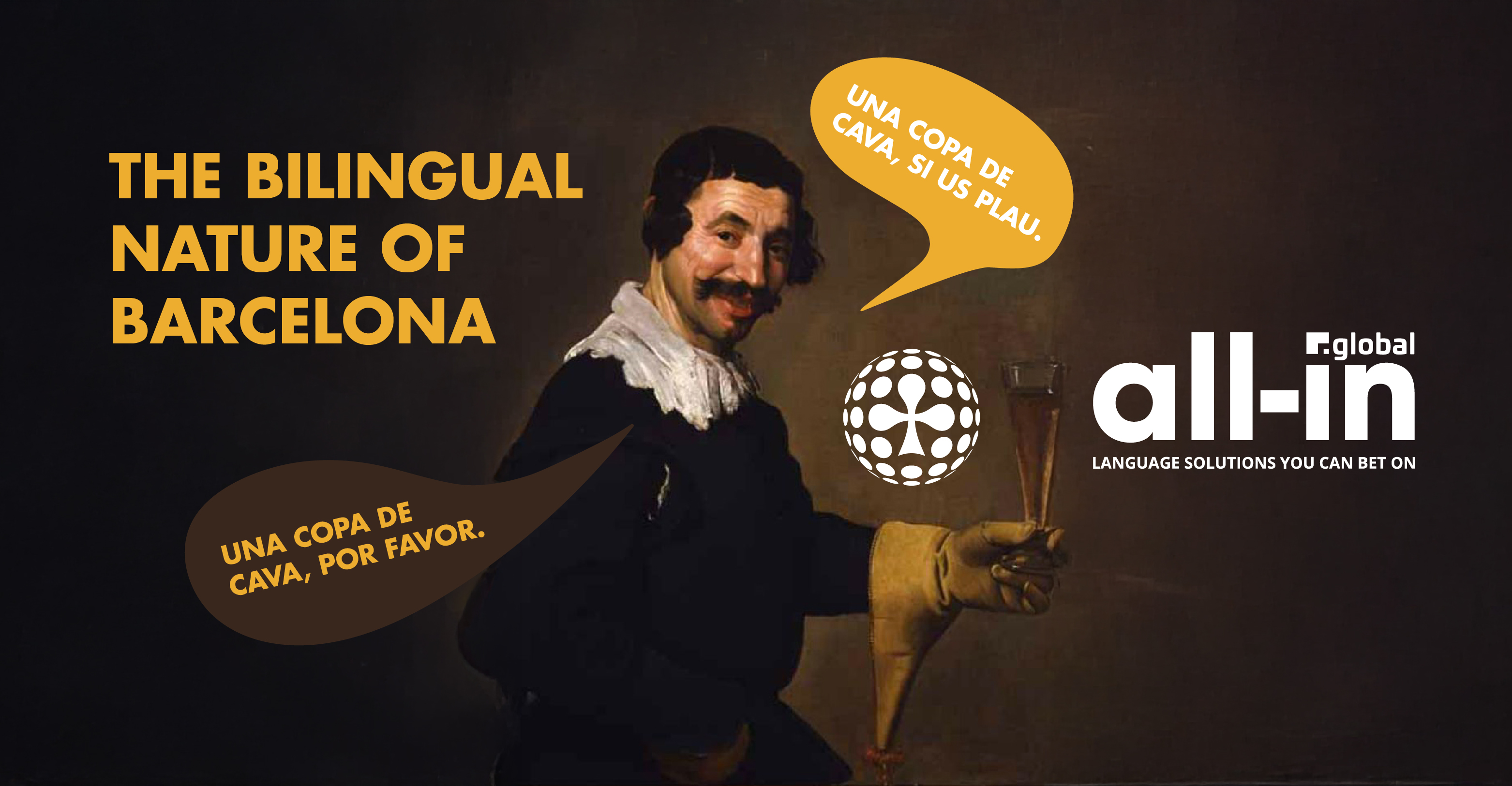
Mon Jan 6th / James Pacheco
HOW TO AVOID BEING THAT TOURIST AT ICE 2025
Navigate Spanglish and Catanyol like a local.
If you’re an iGaming industry veteran who has spent the last 12 years travelling to ExCel London in the Royal Victoria Dock to attend the International Casinos Exhibition (ICE) every year, you may well have to wait a while till the next one is held in London.
Barcelona has been chosen to be the new host of ICE between 2025-2029 after it beat Madrid, Paris and London for the right to put on one of online gambling’s most important conferences over a five-year period, at the 24,000 square metre state-of-the-art Fira de Barcelona. Areas where Barcelona ‘impressed the judges’ included the scale of its world-class facilities, excellent logistics, outstanding hospitality infrastructure, ROI for customers and the ability to help ICE grow even more over the coming years.
But let’s be honest. We all know the real reason for the move from London to Barcelona this winter: tens of thousands of ICE delegates were (appropriately enough) sick and tired of coming home at the end of every ICE event well…sick…from the freezing temperatures and endless rain that London is so famous for.
That’s mostly a joke, but there’s probably some truth in it.
That said, as part of the venue restructure process, iGBL!VE will move from Amsterdam to London in 2025.
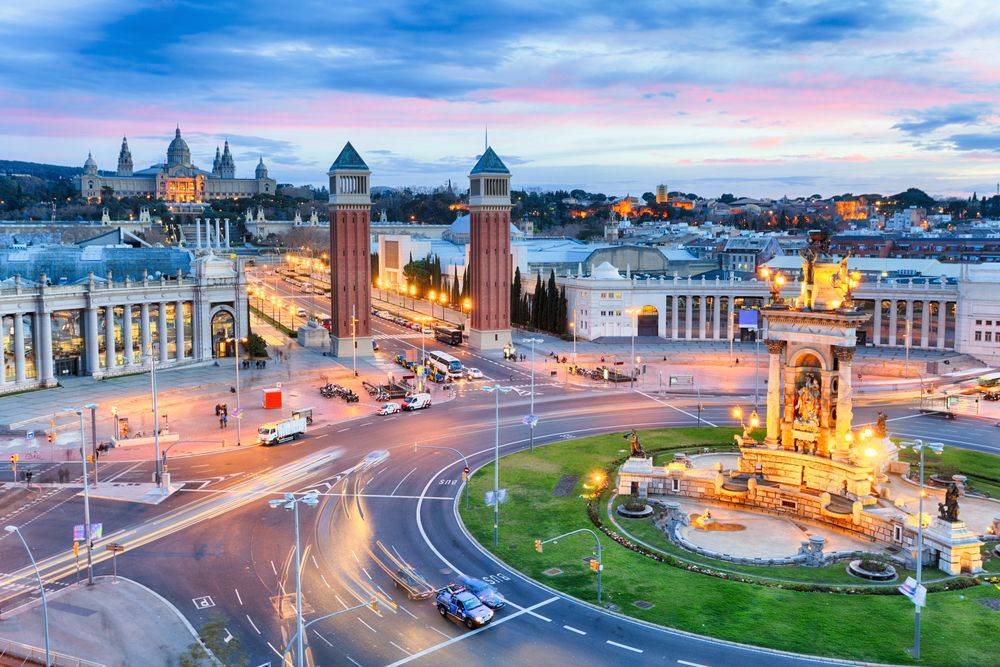
Catalan: A Romantic language…but not in that sense
“Barcelona!
It was the first time that we met.
Barcelona!
How can I forget
The moment that you stepped in the room
You took my breath away.
Barcelona!
La música vibró (The music trembled)
Barcelona!
Yella nos unió (And brought us together)
And if god is willing
We will meet again
Someday…”
So sang the late, great duo of Montserrat Caballé and Freddie Mercury in the song ‘Barcelona’, the official theme for the 1992 Olympics held in that city.
You will have noticed a couple of those lines above weren’t in English. Curiously, they weren’t in Catalan either, but rather, Spanish. But then again, the relationship between Barcelona and the Spanish and Catalan languages has always been a complex one.
Catalan is a Romance language. No, not the St. Valentine’s Day/Meg Ryan/Danielle Steel type of romance. The other type.
Its origins go back to the 8th and 9th centuries in the countries of the Spanish march. Towards the end of the 13th Century, with the death of Jaume I (James I of Aragon) the Catalan language area was defined, with the area stretching across: Catalonia, Andorra, the Balearic Islands, Valencia (country), West Strip (Aragon), North Catalonia (France) and Alghero (Sardinia).
But you certainly won’t have heard much of it being spoken within Spain between 1939-1974. Under the military dictatorship of General Francisco Franco, Catalan was banned in public places and official documents and Spanish was the sole language in public life.
During those years Catalan was cultivated as a language in the monastery of Montserrat (no relation to the singer!) and only in 1975 after the death of General Franco was it introduced as an individual official language, becoming one of two official languages in Catalonia, which still holds true to this day.
Catalan in numbers
In 2024, Catalan was spoken by around 10 million people worldwide, roughly divided into around 4.5 million native speakers and 5.5 million second-language speakers, of which around 2.8 million of the latter, live in Catalonia.
Catalan monoglots – people who can only speak that one language – are few and far between given 99.7% of Catalan speakers are able to speak Spanish and 99.9% are able to understand it.
Catalan is not, however, the most spoken language in Barcelona, Spain’s second-largest city and the capital of Catalonia.
Or at least not according to the 2013 linguistic census held by the Government of Catalonia. That honour fell to Spanish, the ‘other’ language in Barcelona.
It is, however, something of a misconception that everyone in Barcelona speaks Catalan.
While it is understood by 95% of the Barcelona population, just 72.3% can speak it, 97% can read it and only 53% can write it.
That figure of 72.3% is very significant, however. It helps explain the code-switching and total bilingualism of many Barcelona citizens. Seamlessly transitioning from Spanish to Catalan mid-sentence and vice-versa isn’t just them showing off; it’s a local, cultural phenomenon that naturally stems from using both languages side-by-side in everyday life, for the whole of your life.
In this regard, by having two official languages, Barcelona joins something of an elite club of bilingual cities worldwide, the definition of which is ‘cities where two languages are used as the main language”. Other members of the club? Brussels (French/Flemish), Toronto (English/French) and Los Angeles (English/Spanish), to name but a few.
Catalan v Spanish
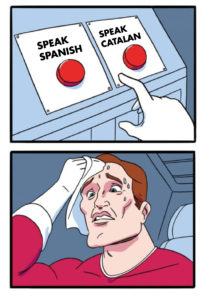
It’s worth remembering that just because they’re both languages spoken in Spain and share some similarities, there are also plenty of distinct differences between the two.
Such as: they use different past tenses, Catalan uses ‘weak’ pronouns whereas Spanish doesn’t, and there are vastly different pronunciations. Catalan has seven vowels, Spanish has five.
There are also slightly different spellings of the same word, further proof that Catalan and Spanish isn’t like speaking UK and US English; the former two really are different languages.
Consequently, given the pair of them are official languages of Catalonia, all signposts within the autonomous community of Catalonia are written in both languages.
What certainly aren’t official languages are the likes of Spanglish and Catanyol.
Spanglish is Spanish spoken with the use of some English terms thrown in there like spices and herbs into a Mediterranean oven-baked dish. In contrast to Inglañol, which is English spoken with some Spanish terms in there. Catanyol, no prizes for guessing, is a mix of Spanish and Catalan.
No hablo…no problem
If you’re coming to ICE in Barcelona in January and don’t speak either Spanish or Catalan or God forbid, Catanyol, don’t worry.
As a huge international event, announcements, signage and other important communications at ICE will always be available in English, as well as selected other languages.
And when having dinner in Barcelona (probably around midnight, ‘When in Rome…’ and all that) followed by some late-night Sangrias and locally-brewed Estrella Dams, you can expect to find a good number of people around you are speaking any of the following languages, which reflect the cosmopolitan and multi-cultural nature of Barcelona: Arabic, Bengali, Mandarin Chinese, Romanian, English, Portuguese and Quechua.
Catalonian isn’t just a question of language, it’s a question of pride
Catalonians are a proud bunch and rightly so. This isn’t the time or the place to go into huge depth about their desire to be independent, or the failed attempt to hold a referendum on the matter back in 2017. Instead, we’ll give you two examples of their sense of regional identity and pride.
For starters, they refuse to allow Catalan dances such as the sardana to become extinct. Dressed in traditional costumes that date back to the 17th century, members perform dances where they join hands together and dance in circles with small, extremely precise and measured steps; the circle becoming increasingly bigger as others join it. These dances are often performed at weddings and village festivals.
But, if no one is going to have a go at you for not wishing to partake in dances that are over 400 hundred years old, the same can’t be said of our old friend: the Catalan language.
In an attempt to make sure its presence is as strong within Catalonia for the long-term future as it has been for the last few centuries, the local laws determine that it must be spoken by teachers, doctors and public workers. At schools, all primary and secondary education is given in Catalan. Spanish is a separate subject, just like English may be at an Italian or German school.
Want to open a business in Catalonia? By all means go ahead but remember to label products, issue receipts and post signs in Catalan, or else you’ll face hefty business fines.
Though Catalans are more than happy to speak to foreigners in English, they’ll always encourage those settling there to learn Catalan if they really want to feel part of the community.
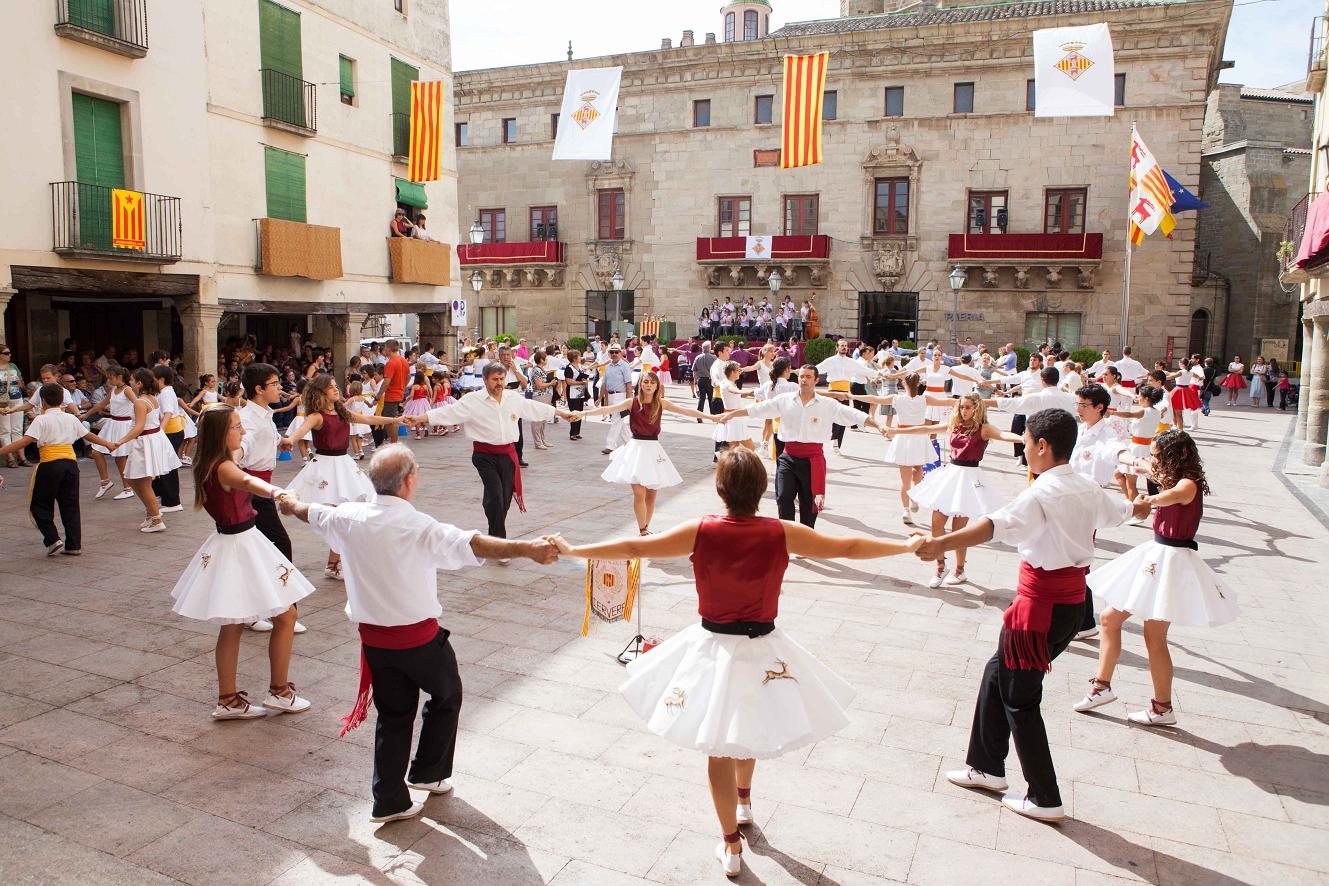
Don’t stand out as being a foreigner (even if you are)
If you want to stand out as an outsider, like a north European wearing socks underneath their sandals at the beach or an English person ordering a Chicken Tikka Masala in Mumbai, by all means go ahead and refer to the city of Barcelona as ‘Barça’.
If you want to even try to pass as a local, don’t. Whereas the locals may refer to the city as ‘Barna’, the term ‘Barça’ is only ever used as an abbreviation for the city’s football club, FC Barcelona, never the city itself.
Speaking of which, few things about Catalonia embody the spirit, irreverence and local pride of the local community as Barça itself, whose world-famous motto of ‘Més que un club/More than a club’ expresses the desire of the Catalan people and club itself to be just that: more than solely a sporting club and instead, the most representative sporting institution in Catalonia, and one of its most important and influential ambassadors.
The club that is more than a club
Just ask Joan Gamper, the Swiss-born founder of Barcelona back in 1908, who insisted that the spirit with which Barcelona FC was founded was the second reason for the club’s existence, beyond just being a sports club trying to win trophies:
“The promotion and participation in social, cultural, artistic, scientific or recreational activities that are appropriate and necessary to maintain the representativeness and public projection that the club enjoys, the result of a permanent tradition of loyalty and service to the members, the citizens and Catalonia.”
In this sense, FC Barcelona is and always has been somewhat politically motivated and is also a firm defender of democratic rights and freedom. Proof of the famous motto in practice was Gamper’s willingness to bring the club closer to politically active sectors of Catalanism and coming out in defence of the identity and national rights of Catalonia. At no time was this more obvious than in 1918 when Gamper, still President of FC Barcelona at the time, made sure the club joined the request for a statute of autonomy for Catalonia.
During the Franco years FC Barcelona became an anti-authoritarian reference, organised freedom fighters if you will.
More than a club indeed.
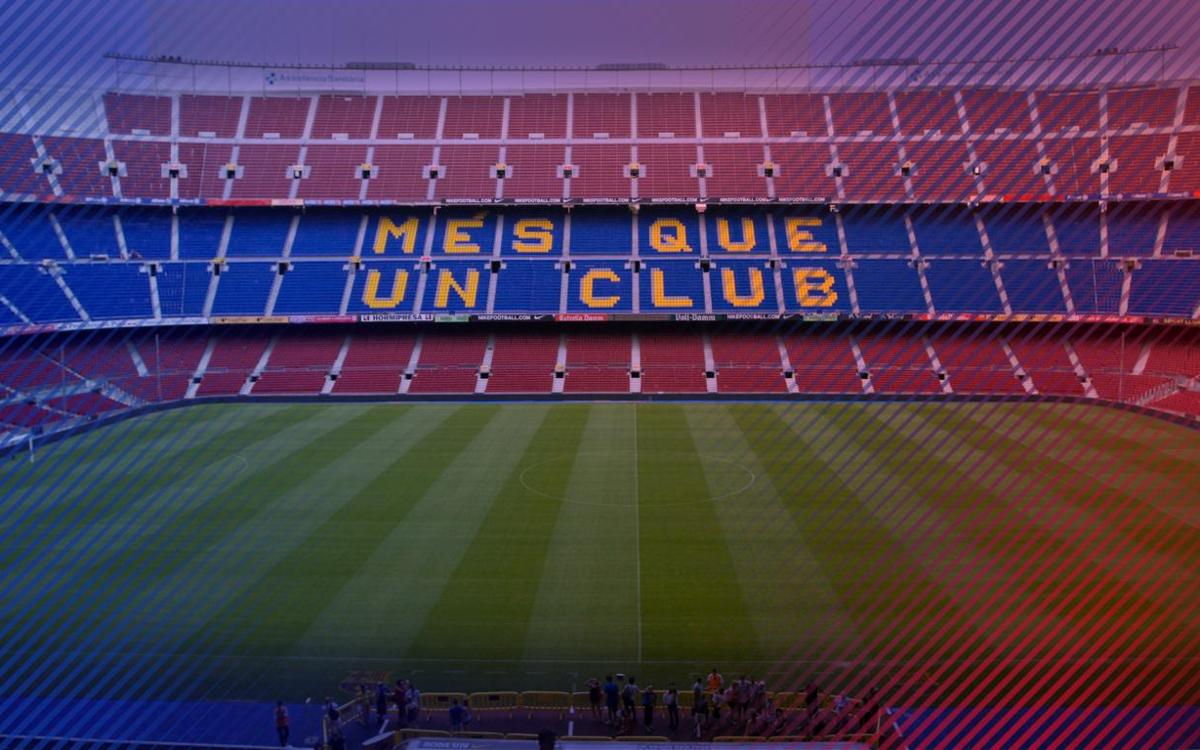
How we at All-in Global speak your language
Now that you know a bit about the reasons why ICE shifted from London to Barcelona for 2025 (both the ‘official’ ones and the conspiracy theory one), some facts and figures about Catalan and a bit about what ‘more than a club’ actually means at Barcelona FC, it’s time for you as an iGaming professional to pay us, at AIG, a visit at stand 5F38 during ICE Barcelona.
After all, if it’s best-in-class translation, localization, human-written content, blog posts, marketing and social media content, SEO services or game and online casino reviews you’re looking for to help grow your business, come and chat with someone who speaks the same language as you.
But which language? We offer our services in 100+ languages and dialects, a good all-round reflection of both the demands of this truly global industry and our positioning as a can-do provider of content, whatever your unique requirements.
And we don’t just offer translated content or content in x language but rather, localised content. We recently highlighted the importance of localised content when discussing the games that changed our lives. Localisation ensures a greater global reach, a superior tailor-made customer experience, helps avoid cultural misunderstandings and local traditions and keeps the lawyers and spin doctors happy at your company by ensuring compliance with local laws.
If you ask us nicely, we’ll even provide content in Spanglish.
Get in touch with our team at [email protected].




